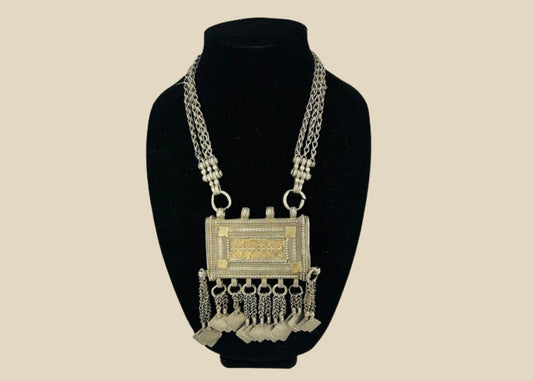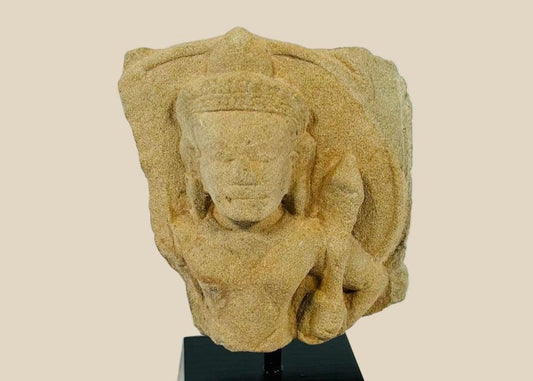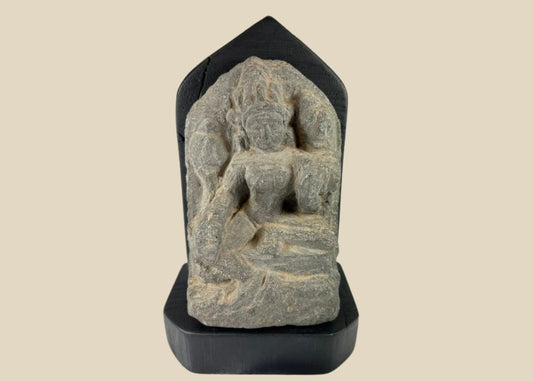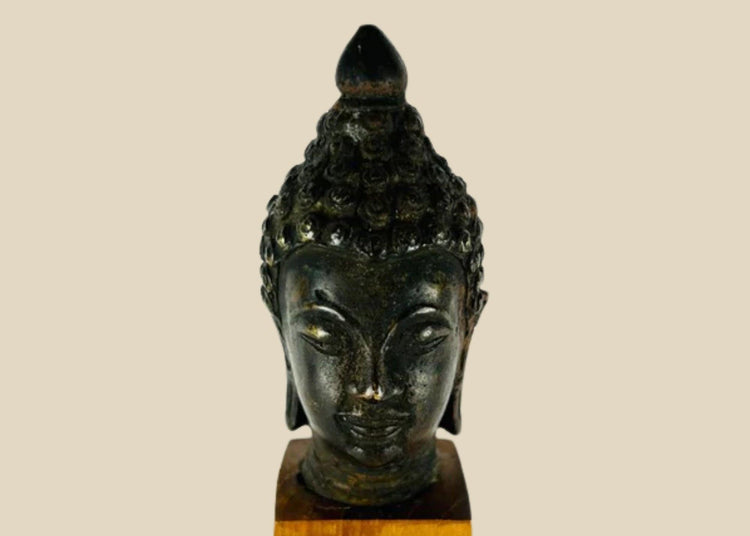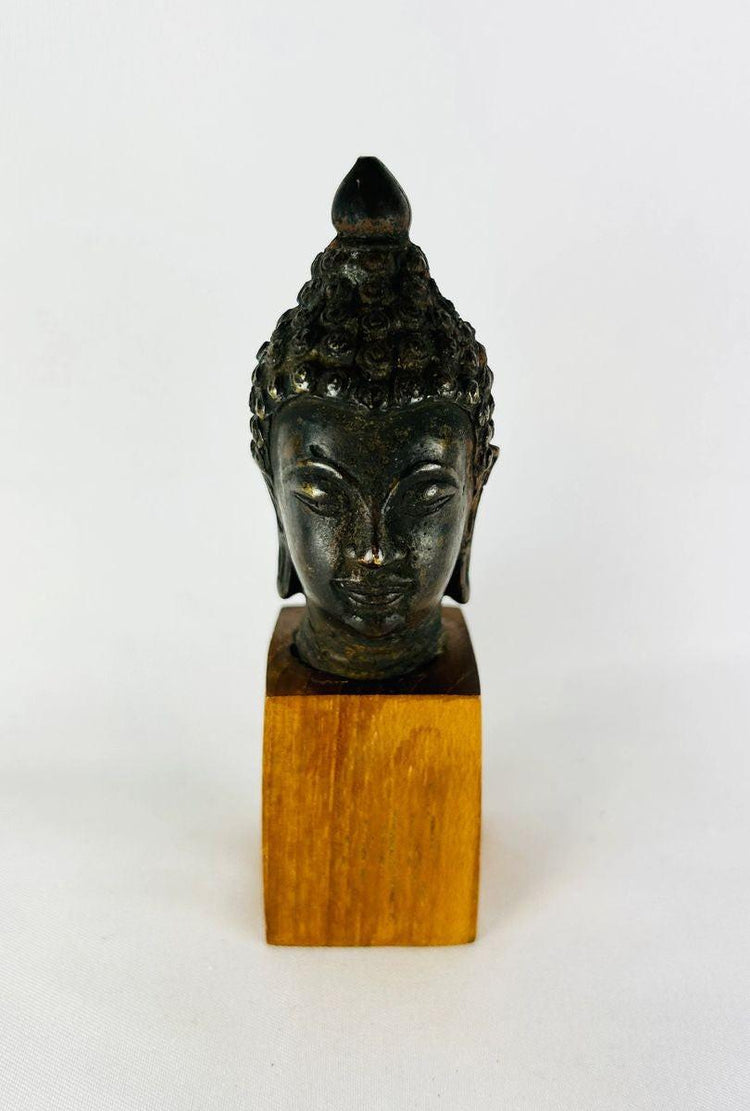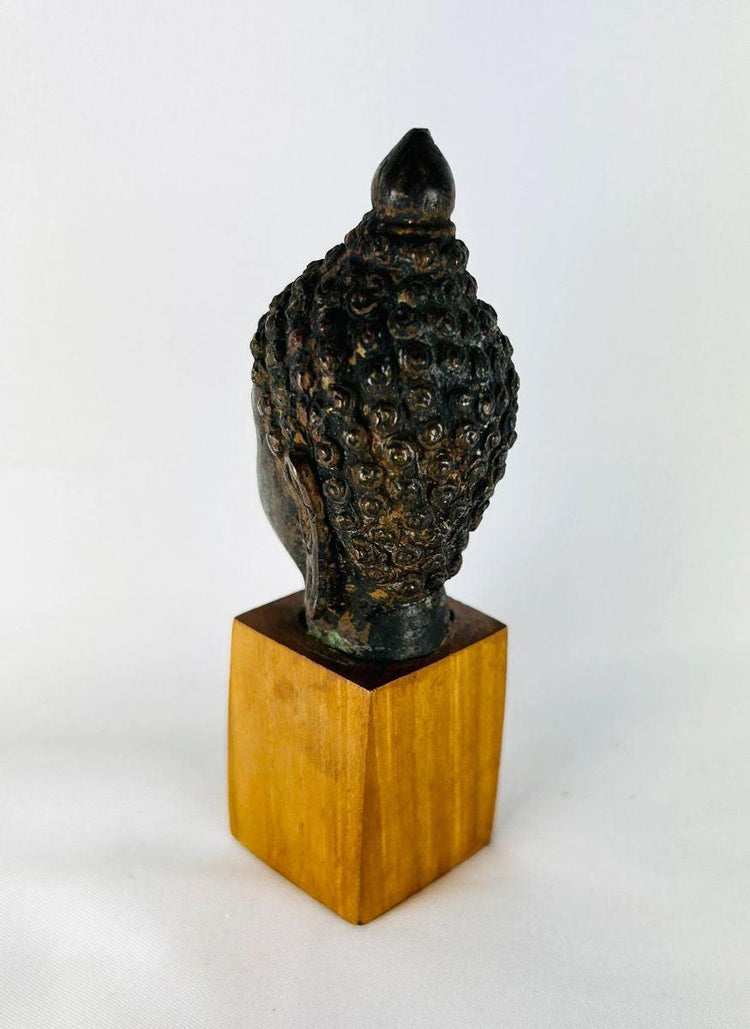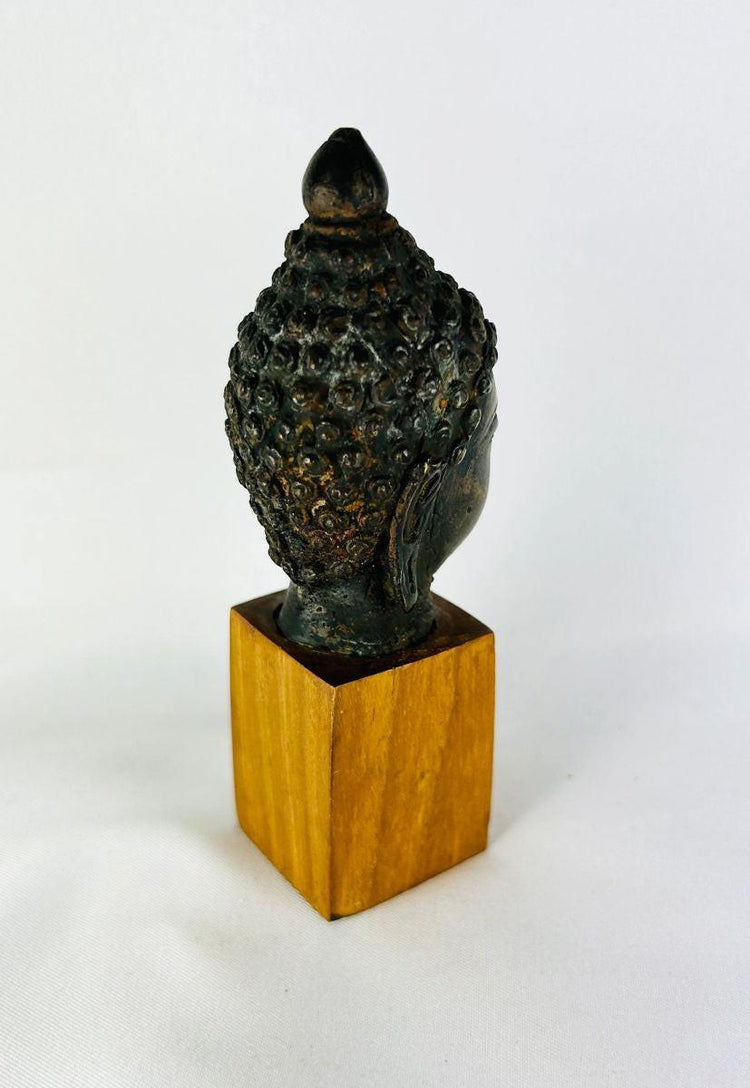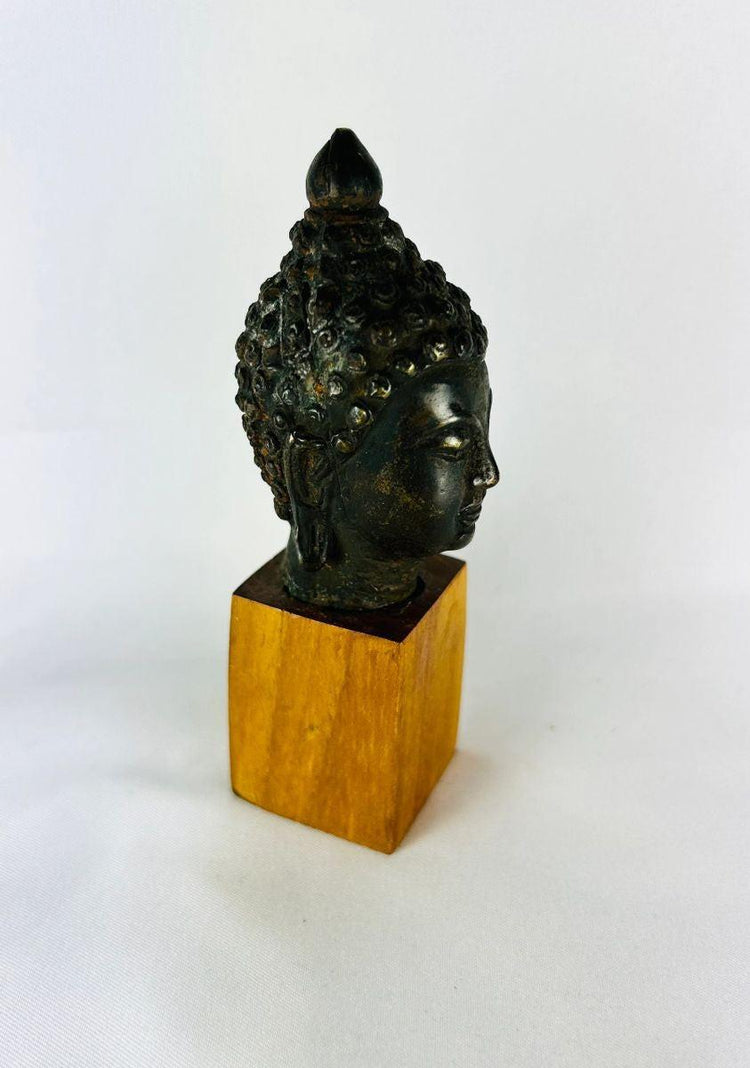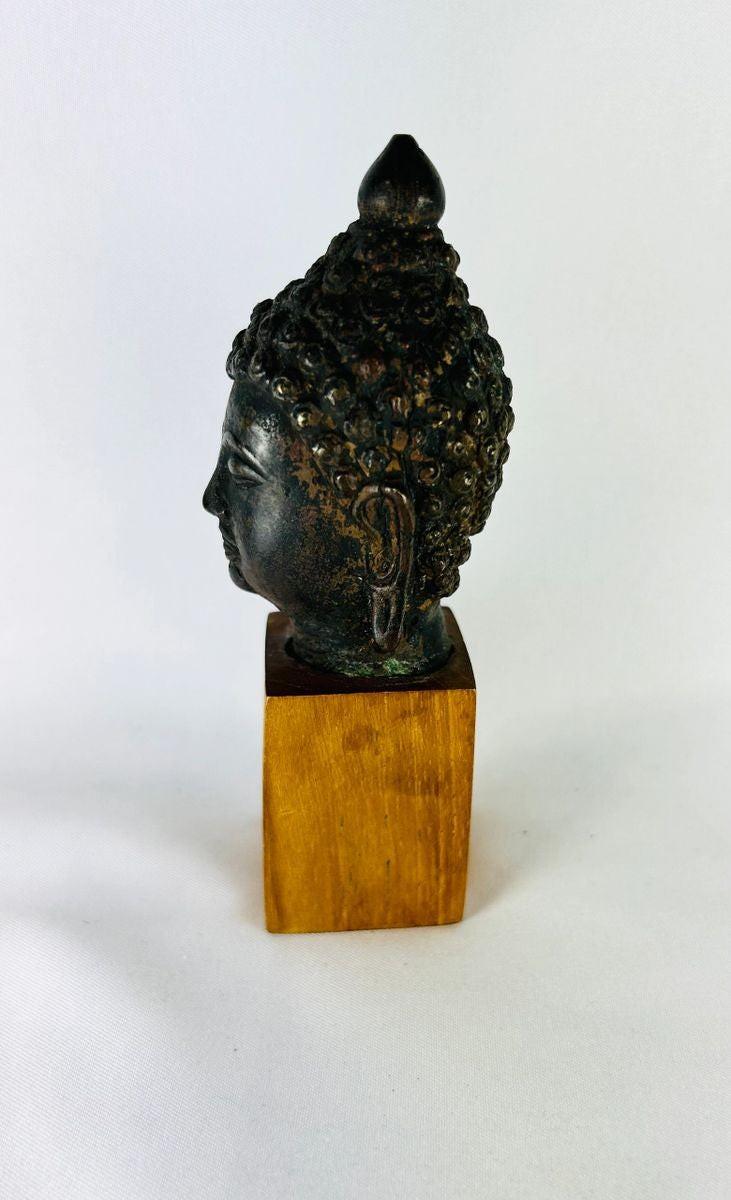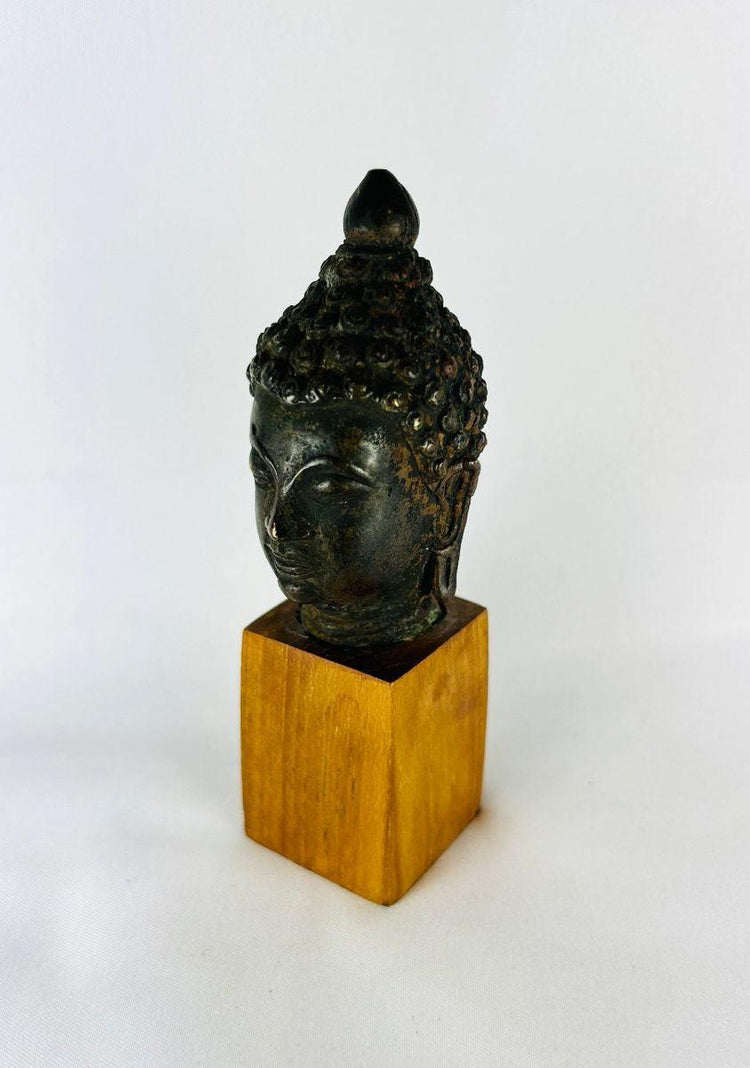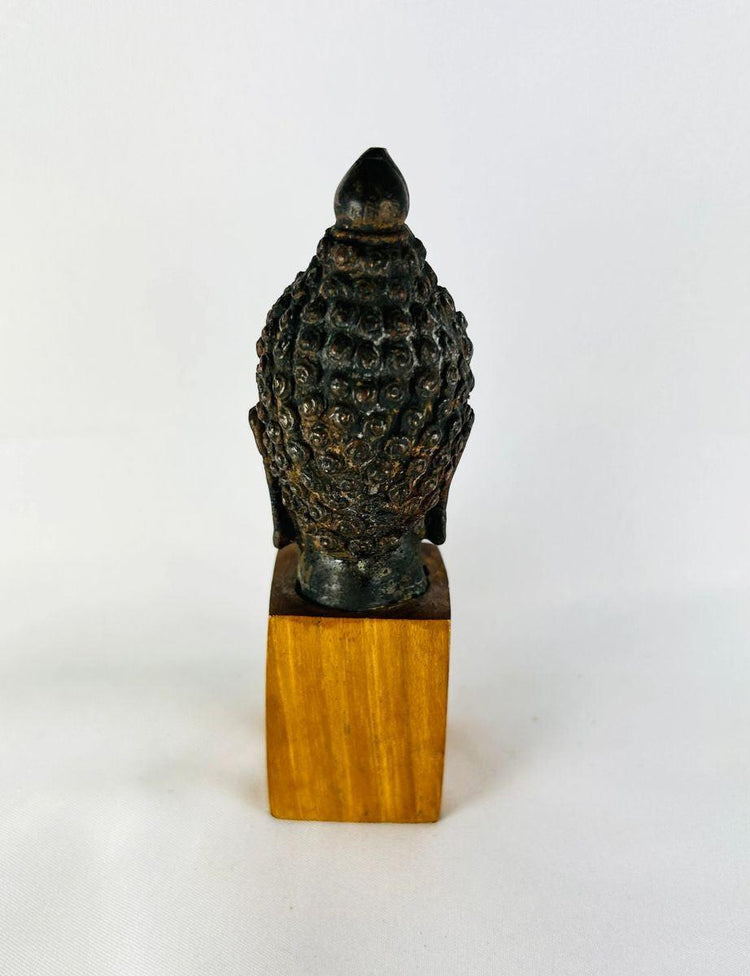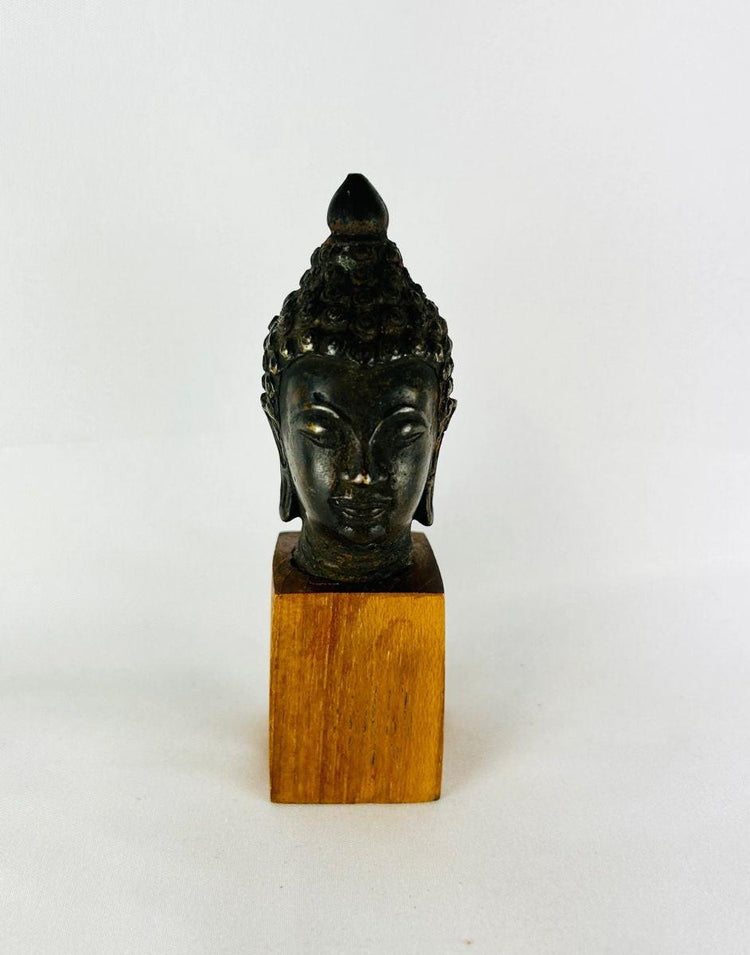Southeast Asian Bronze Buddha Head | Cast Sculpture with Dark Patina | 18th–19th Century CE
Description
More
Less
Historical Context & Origin
Region: Southeast Asia (likely Thailand or Burma)
Material: Cast bronze with natural patina
Period: 18th–19th Century CE
Description
This finely cast bronze Buddha head reflects the refined artistry of Southeast Asian religious sculpture. The serene expression, with gently closed eyes and subtly curved lips, conveys the essence of inner peace and enlightenment central to Buddhist teachings. The ushnisha atop the head symbolizes spiritual wisdom, while the intricately modeled curls of hair exemplify the high level of craftsmanship characteristic of the period. A rich dark patina enhances its historic presence and authenticity.
Features
- Serene facial expression with closed eyes and gentle smile
- Ushnisha (cranial protuberance) symbolizing wisdom and enlightenment
- Intricately detailed hair curls, carefully modeled by skilled artisans
- Dark bronze patina developed naturally over centuries
- Mounted on a minimalist wooden base for display
Cultural Significance
Buddha images such as this served as devotional icons in temples, shrines, or private altars. In Southeast Asia during the 18th–19th centuries, Buddhist sculpture merged regional traditions with Theravāda philosophy, emphasizing tranquility, compassion, and spiritual insight. Such works were created not only as objects of beauty but also as focal points for meditation and worship.
Condition
The sculpture remains in excellent condition with well-preserved facial details and surface patina. Signs of natural age and handling are consistent with its historical use and enhance its authenticity.
Dimensions (approximate)
Height: 9.75 in
Width: 4.5 in
Age
18th–19th Century CE
Learn More
View Our Collection of Ancient Buddha Sculptures & Sacred Artifacts
Explore the Life and Teachings of the Buddha through The Met Museum
Description
Historical Context & Origin
Region: Southeast Asia (likely Thailand or Burma)
Material: Cast bronze with natural patina
Period: 18th–19th Century CE
Description
This finely cast bronze Buddha head reflects the refined artistry of Southeast Asian religious sculpture. The serene expression, with gently closed eyes and subtly curved lips, conveys the essence of inner peace and enlightenment central to Buddhist teachings. The ushnisha atop the head symbolizes spiritual wisdom, while the intricately modeled curls of hair exemplify the high level of craftsmanship characteristic of the period. A rich dark patina enhances its historic presence and authenticity.
Features
- Serene facial expression with closed eyes and gentle smile
- Ushnisha (cranial protuberance) symbolizing wisdom and enlightenment
- Intricately detailed hair curls, carefully modeled by skilled artisans
- Dark bronze patina developed naturally over centuries
- Mounted on a minimalist wooden base for display
Cultural Significance
Buddha images such as this served as devotional icons in temples, shrines, or private altars. In Southeast Asia during the 18th–19th centuries, Buddhist sculpture merged regional traditions with Theravāda philosophy, emphasizing tranquility, compassion, and spiritual insight. Such works were created not only as objects of beauty but also as focal points for meditation and worship.
Condition
The sculpture remains in excellent condition with well-preserved facial details and surface patina. Signs of natural age and handling are consistent with its historical use and enhance its authenticity.
Dimensions (approximate)
Height: 9.75 in
Width: 4.5 in
Age
18th–19th Century CE
Learn More
View Our Collection of Ancient Buddha Sculptures & Sacred Artifacts
Explore the Life and Teachings of the Buddha through The Met Museum
You May Also Like

